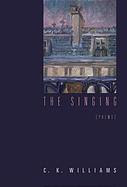Where do we live?
Director Shekhar Kapur discussing his most recent film, Elizabeth: The Golden Age with Elvis Mitchell on KCRW’s The Treatment (10/24/07):
"It is about, where does a body end—where does everything end—and where does the spirit start? When you’re jogging, at one point—I used to do this and test it out—I [would] run, run, run till the body gives up and then suddenly the spirit takes over. So that fascinates me. Where do we live? Do we live in the body or do we live in the spirit? When you make films about men, it’s always about the body and about conquest and the maleness of it—unless you make Buddha or Ghandi or Mandela. But with women, it becomes much more interesting and much more complex because the spirit fights back."





















